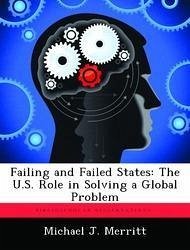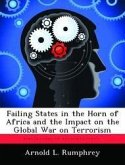Since the end of the Cold War, Global security has been threatened more by weak nations than by dominant ones. This post 9/11 change in understanding mandates a change in strategic thinking of threats, and therefore engagement of failing states. Failing states present many threats to the international security arena and have recently come to the fore of international security circles. States which have failed require a greater level of effort in terms of intervention to contain their global effects versus those states which are failing. The United States is the only nation with the Military and Economic resources capable of independently engaging both failed and failing states. Unfortunately, U.S. interests, national will and domestic politics all guide whether or not the U.S. intervenes in certain failing states and prevents the U.S. from engagement in others. Engaging failing states with a global perspective requires an organization that is committed to the betterment of states, regions, and the global community as a whole, and is prepared to intervene in state domestic issues in order to ensure regional and global security. To engage failing states, the world needs a globally focused organization capable of engaging a policy of prevention. This work seeks to define the threat failed and failing states present to the global security arena, and postulate that failing states can be more effectively engaged through prevention efforts thereby conserving manpower, time, and resources.
Bitte wählen Sie Ihr Anliegen aus.
Rechnungen
Retourenschein anfordern
Bestellstatus
Storno








